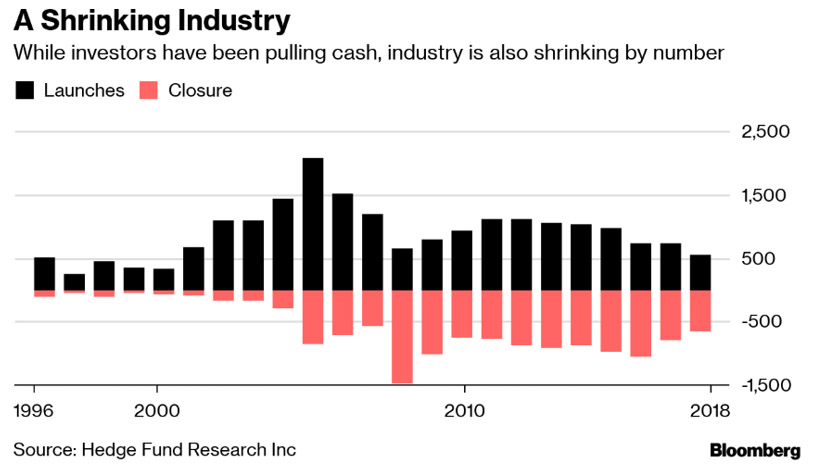In the summer of 1988, Donald Sussman was doing what he normally does. He was making money in the stock market.
At an early age, he had an intense curiosity for the stuff. At 12, he made six times his money on Michigan Sugar. Was he lucky? Well, maybe that had something to do with it.
But Sussman says he was one of the few to correctly predict the Cuban Revolution…at age 12. And of course, he immediately thinks of what that could do to sugar prices.
Needless to say, Sussman has a mind for markets.
In 1988, Sussman got a call from former Columbia University professor, David Shaw.
‘I’d like to come see you,’ 37-year-old Shaw told Sussman.
Shaw had a PhD in computer science from Stanford and went straight into academia. He soon found himself at Columbia researching massively parallel computing with NON-VON supercomputers.
He was essentially conducting tree structure (probability) experiments.
When Shaw contacted Sussman, he was at Morgan Stanley. There, he was working on a secret investment project, but had just received an offer from perhaps the most prestigious investment bank in the US, Goldman Sachs.
And he wanted Sussman’s advice. Should he take his idea of merging computers with investing to Goldman, or stay with Morgan Stanley? Sussman told him to do neither.
‘If you’re confident this idea is going to work, you should come work for me.’
Is it computers or something else?
That meeting made Sussman richer than ever.
He gave Shaw and his team $30 million to set up D.E. Shaw, a quantitative hedge fund. They turned that into a $47 billion business.
But how did Shaw make so much money?
People will tell you it’s the high-powered computers Shaw used — the ‘Ferraris’ Sussman calls them.
But give an investor a couple of supercomputers today, and money doesn’t just appear.
Upon seeing the money to be made, other academics and computer scientists followed Shaw into the industry.
Today, quant funds are some of the most popular in the hedge fund community.
Yet only a handful have been truly successful. Only a handful have been able to generate truly amazing returns over long periods of time.
Included in that handful are names like D.E. Shaw, Renaissance Technologies and PDT Partners.
The rest…well, they leave a lot to be desired. [openx slug=inpost]
While being extremely popular, very few quant funds make ‘real money’ for their investors.
They can’t generate decent enough returns; others can’t even keep up with the market. And it’s causing a whole bunch of quant funds to close up shop.
Amplitude Capital is one recent example. Bloomberg writes:
‘Quantitative hedge fund Amplitude Capital AG, bruised by two years of losses in one of its main money pools, is returning client money after investor withdrawals sparked a plunge in assets, while Manuel Blanco, who previously managed money for the likes of Highbridge Capital Management and Balyasny Asset Management, is shutting down his hedge fund Sator Square Capital Management after failing to raise enough money.’

So, if it’s not the high-powered Ferraris doing all the heavy lifting, what or who is?
How do D.E. Shaw, Renaissance Technologies and PDT Partners generate oodles of money year after year?
Your stock investment edge is not a supercomputer…
What makes a really good quant fund, and good investor for that matter, is not the tech or computing power used.
What’s far more important is the opportunity you exploit.
It’s not enough to simply look at correlations, or create models to loosely predict near-term outcomes.
Everyone is doing that!
What Shaw, Renaissance and PDT do is look for opportunities, events or peculiar occurrences that very few others are looking at.
They want to find trades that no one is following. The fewer eyeballs the better.
And because no one is looking at these inefficiencies, they have the opportunity to take advantage…until the rest of the investment community catches on and piles in.
Sure, high-powered computers crunch the numbers.
But they’re a tool. And tools are only as good as the tradesmen using them.
What’s far more important is the special situation. The rare opportunity that creates potentially huge returns for those that can identify them fast.
Stay tuned.
Your friend,
Harje Ronngard





Harje Ronngard is one of the editors at Money Morning New Zealand. With an academic background in finance and investments, Harje knows how difficult investing is. He has worked with a range of assets classes, from futures to equities. But he’s found his niche in equity valuation. There are two questions Harje likes to ask of any investment. What is it worth? And how much does it cost? These two questions alone open up a world of investment opportunities which Harje shares with Money Morning New Zealand readers.